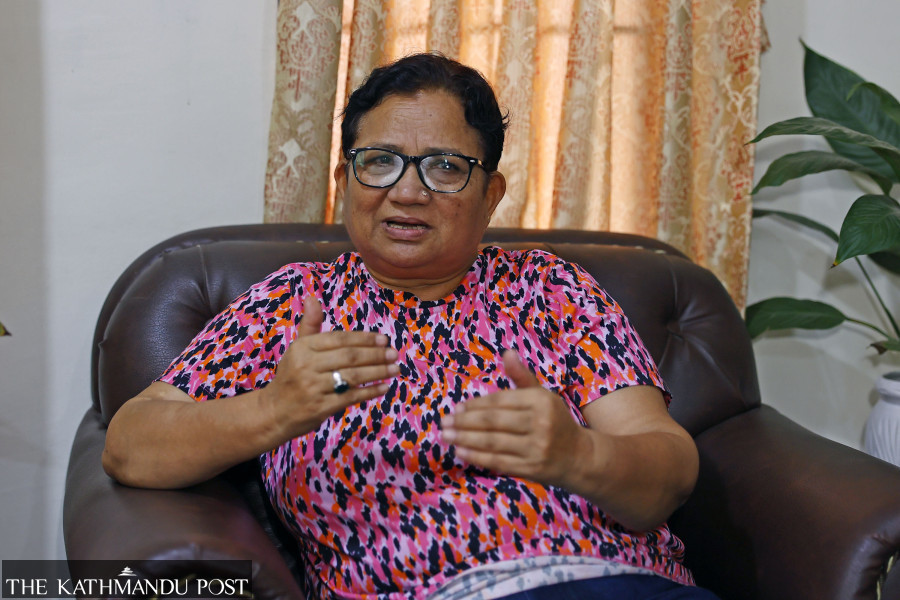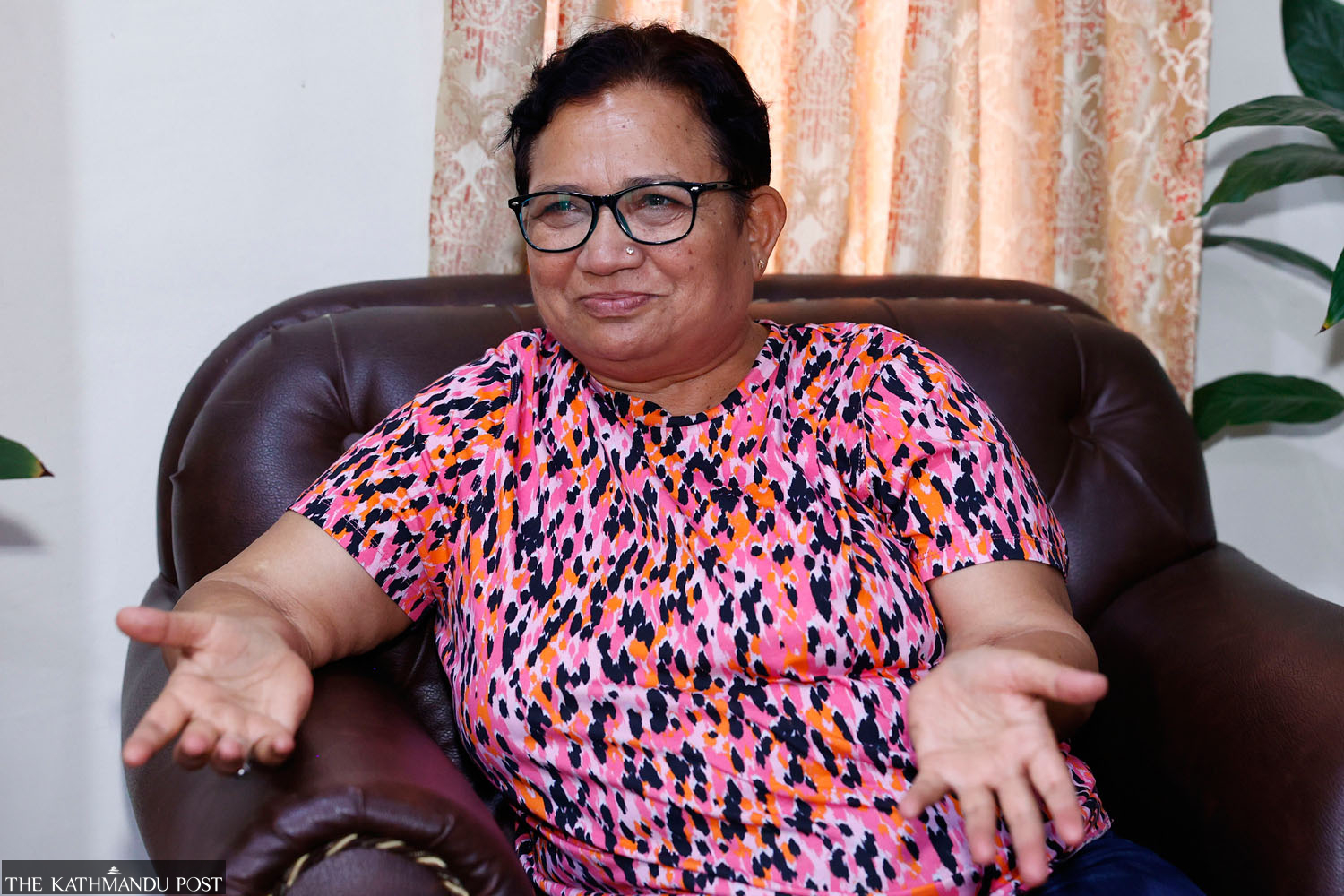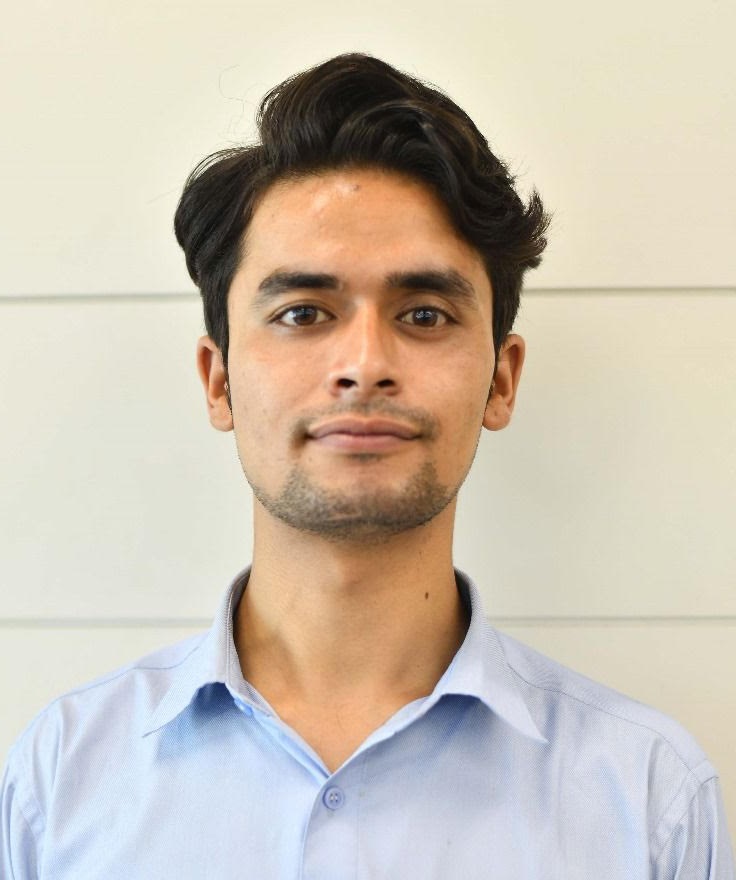Interviews
Dahal’s contribution to the Maoist party is unrivalled
The top priority of the Maoist Centre is to reconnect with our voters, especially marginalised communities and oppressed class across the country.
Biken K Dawadi
The main opposition party CPN (Maoist Centre) has been embroiled in a power struggle with leader Janardan Sharma making a claim for party chair’s post. Separately, the party is on a nationwide ‘awakening campaign’. The Post’s Biken K Dawadi sat down with the party’s vice-chair, Pampha Bhusal, to discuss the Maoist Centre’s internal power struggle, transfer of power, and its declining popularity.
Maoist Centre’s share of lawmakers in parliament has been declining over the past few elections. What accounts for this and how does the party hope to regain lost ground?
One big cause for our smaller presence in parliament is the party’s fragmentation over the years. As a solution, we are trying to unite all the parties who believe in Maoist and communist ideologies. We aim to merge all communist parties so as to register a significant presence in parliament. The earlier election partnership with the Nepali Congress and other parties did not yield the expected results. A leftist unification can give us a greater presence in the legislative and help us carry out socialist reforms.
Another cause of the declining popularity of the Maoist Centre is its election partnership with other parties. We fielded a limited number of candidates for the directly elected 165 seats when we partnered with other parties. We have realised that we do not want the politics of partnerships. We needed those partnerships and had to compromise when we needed to draft and implement the constitution. But that was a different situation. The bottomline is that we will not seek election partnerships in the future.
Most importantly, we got disconnected from our voters. Some of us got involved in dirty politics, changed friend circles, and forgot about our core voters: Marginalised communities and oppressed class. The top priority of the Maoist Centre is to reconnect with our voters, especially marginalised communities across the country. We recently concluded the Tarai-Madhesh Awakening Campaign under the leadership of Chairman Pushpa Kamal Dahal. Immediately after, we started a Mid-hill Highway Awakening Campaign but had to pause it to the annual budget announcement.
With the rise of new parties, political analysts have pointed out the possibility of a decrease in the support for the Maoist Centre. How do you see this equation?
We are a party with an ideology as the core driver of all of our activities. We need not be concerned about new parties that are without a well-defined ideology. Such political parties are not sustainable. If anything, an argument justifying the loss of support for our party has been proved baseless by recent political events. We registered a positive result in the recent Free Students Union (FSU) elections, as well as in the elections of the Federation of Nepali Journalists. Such results our sister wings have gotten are indicators of Nepali people’s trust.
A week ago, there were reports of the Maoist Centre deciding to unify with the Netra Bikram Chand-led Communist Party of Nepal. However, some leaders of the party say unification is now off the table.
First, it must be clarified that the Maoist Centre still supports the idea of having the Chand-led party under its fold. In fact, as I stated, we believe all communist parties need to unify. The unification between the two communist parties was called off after the Chand-led faction took a position we are still deliberating if we can compromise. The recent merger with Ganga Narayan Shrestha-led Nepal Socialist Party (NSP) stands as evidence of our intent on communist unification and our ability to make compromises for that cause.
There have also been reports of a possible merger with Madhav Kumar Nepal-led CPN (Unified Socialist) with claims that they have asked to rename the unified party, redacting the ‘Maoist’ label. How true are these claims?
The merger with Madhav Kumar Nepal-led Unified Socialist is totally on the table. And they have indeed proposed to change the name of the party if we merge. Honestly, we are ready to make that compromise. Previously, we dropped the ‘Maoist’ label from the party’s name when we merged with CPN-UML. So it is not that big of an issue. However, the Unified Socialist has backed off from the merger idea. From our side, we will make all the compromises needed to unify the communist bloc in national politics.

Chairman Dahal has been at the helm of the party for around 35 years, the longest tenure of a head of one of the three major parties. When will there be a transfer of power in the party?
Although Chairman Dahal has been the leader of the party for over three decades, he is still a new face compared to Nepali Congress President Sher Bahadur Deuba and CPN-UML Chair KP Sharma Oli. The other two leaders have been in politics since the Panchayat era. Chairman Dahal only entered mainstream politics after the abolition of monarchy.
Currently, replacing Dahal is out of the question. What we need from the chairman of the Maoist Centre is the ability to be a leader of leaders. We need a leader with their own sub-philosophy within communism that can unite other leaders in the party. Until a leader steps forth with a political philosophy to compete against Chairman Dahal’s ‘Prachandapath’, we do not need a change in leadership. The recent meeting of the standing committee has clarified that a majority of the party’s top leaders agree with this line of thought.
In addition, when we talk about power transfer, we have to accept that the second-rung leaders of the party, who are portrayed to be in line of succession, are all sexagenarians, while Chairman Dahal is a septuagenarian. So it will not necessarily be an inter-generational power transfer.
Leader Janardan Sharma has been vocal against Dahal’s leadership, raising doubts about the unity in the party. What are your views on his claim to the party’s top position?
Some of the earlier media reports suggesting Sharma’s aspirations to succeed Dahal at the party’s helm were blown out of proportion. I do not believe Sharma demanded such a change. He did clarify his intentions during the meeting of the standing committee. However, his claims were quashed there as the majority of the party’s leaders did not agree with him. In addition, Sharma does not have a political philosophy to replace Prachandapath or to unify the ideologies of the communist parties in Nepal. But I do acknowledge that he has the party’s interest at heart, not just a desire for political power. His intentions were painted in a negative light by the media. The effects of his aspirations on the current party hierarchy were exaggerated. All of the top leaders stand united under Chairman Dahal’s leadership.
While talks about Sharma and Barshaman Pun succeeding Dahal have been making headlines, you, as the vice-chair, having already chaired a party in the past, are also a likely candidate for party chair. Why have you not staked a claim?
I understand the interest from political circles on why I have not staked a claim on the party’s top position. After all, I was the chairperson of the erstwhile Janamorcha Party, which gives me an edge in party leadership experience. And my current position as vice-chair adds credibility to my claim. In addition, being a woman, part of a marginalised group in national politics, it would be in line with the communist ideology of empowering marginalised communities.
However, I firmly believe Chairman Dahal is the right person to lead the party. I will always support the continuation of his role as the chairperson. As long as he does not believe that a leadership change is necessary, he should be at the helm, as his accomplishments as the leader of the party are unrivalled.
If Chairman Dahal decides to step down one day, I would probably stake a claim to the position, but only after careful consideration.
Are there any chances of a merger between UML and the Maoist Centre? How would a change in UML’s leadership affect those chances?
UML Chairman Oli betrayed the Maoist Centre when the parties merged earlier. We don’t want to merge with a party he leads. So long as he chairs the party, a merger is not possible. However, if there is a leadership change in the UML, a merger could work.
Some analysts claim that former Vice-President Nanda Kishore Pun’s return to active politics in the Maoist Centre was a trigger for former President Bhandari’s attempt to return to active UML politics. Was that a planned move?
Not at all. We had no idea of former President Bhandari’s intent when we welcomed former Vice-President Pun back into the party’s fold. Former PLA members revere Pun. The Maoist Centre cadres and members who have been with the party since the ‘people’s war’ still support him. His popularity in the party warranted his comeback. In addition, he still has many years of active politics left in him.




 16.12°C Kathmandu
16.12°C Kathmandu




.jpg&w=200&height=120)







